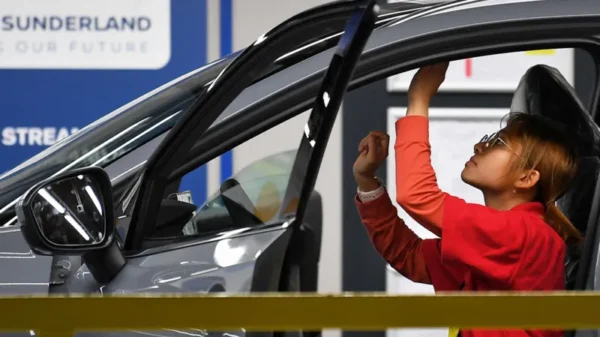During the TechCrunch Robotics Session on MIT’s campus, Sami Atiya argued that increased robotics use in industry will create rather than replace manufacturing jobs.
Atiya is president of the Robotics and Motion division of ABB, a multinational corporation based in Switzerland. ABB specializes in technology in the areas of robotics, power, and automation. As a result of these business operations, ABB has a decided interest in promoting robotics technology. Atiya is not a disinterested party in this analysis.
Atiya presented various data points gathered by ABB to argue his case. He cited such sources as the International Federation of Robots, the World Bank, the Organisation for Economic Co-operation, and the Bureau of Labor Statistics.
Atiya claims that countries with higher rates of robotics integration into industry tend to have correspondingly low rates of unemployment in the manufacturing sector. He points to Japan and Germany as prime examples of this correlation.
He also claims that increased robotics use in the U.S. over the past five years has created 270,000 additional jobs — two jobs per robot deployed, in fact.
It is unclear whether these favorable numbers can be attributed to robotics alone, or whether there may be other factors at play.
Other studies carried out in the past few years have suggested that robotics might have a different effect on employment numbers in the manufacturing sector.
One PricewaterhouseCooper study recently seemed to suggest 38% of U.S. jobs might be replaced by robots by the 2030s.
In December one Los Angeles Times article made the case that robots have had a detrimental effect on manufacturing employment. It attributes a recent slow in hiring in California warehouses to the recent increase in the industrial use of robots.
But the article also notes that while warehouses are employing fewer people, particularly fewer people to do manual work, there has been a surge of warehouse openings in California. Those few jobs which remain in warehouses tend to offer higher salaries and to attract more qualified candidates who specialize in machinery and robotics.
Overall, companies have tended to praise the shift toward robotics, citing increased efficiency in production which leads to growth.
Atiya claims that in order to compete in the current global marketplace, companies and countries simply must use robots. He predicts that the overall increase in productivity will eliminate certain jobs in the short run, but that in the long run it will result in the creation of new, higher-paying jobs.
You can watch Atiya’s talk over at TechCrunch’s website.
























































Comment Template